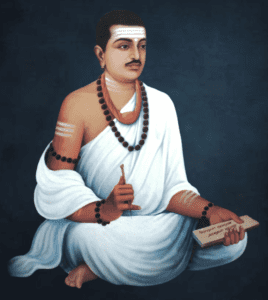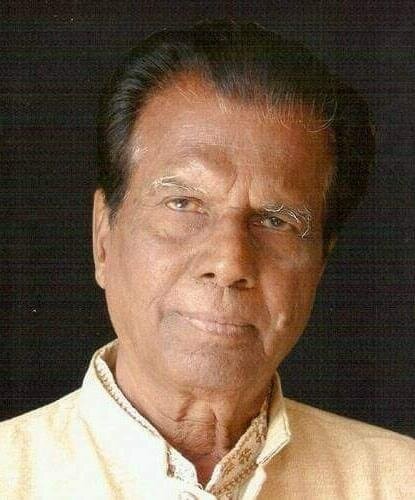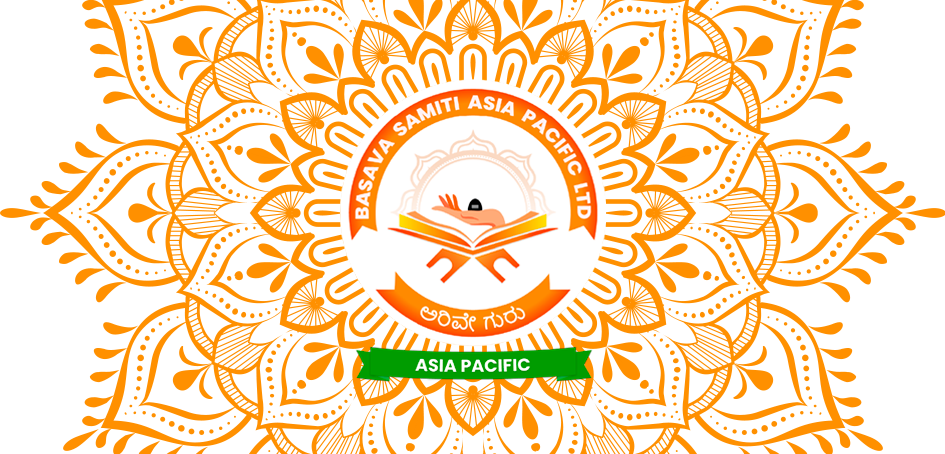
The society is embedded with innumerable opinions which are constantly challenged due to outdated dogmas, stress, lack of courage and confidence. The society has witnessed many sages and philosophers over centuries in their efforts to release the common man from such opinions and uplift the society. Prominent among them is Guru Basava, who successfully used innovative techniques by involving the masses to establish democracy and collectively transformed the social life of individuals in a scientific manner (Refer 1).
Guru Basava was a 12th century philosopher, visionary, social reformer and statesman. With his revolutionary personality, he established human rights, equality, the notion of multi-culturalism and the notion of encompassing one and all.
Guru Basava served as the Chief Minister in the kingdom of Kalachuri dynasty and emphasised the importance of self-purification. He believed, preached, and practised the modern principles embodying humanitarianism such as compassion, fraternity, and democracy. For Guru Basava, compassion was not built on faith, but it was supported by reason and science.
He undertook several initiatives to uplift the downtrodden, educate them and encouraged every individual to work, lead a simple life and serve the society. These concepts enabled the revolutionary thinking and established the common social good.
The collection and adoption of vachanas and the practice of Iṣṭaliṅga Shivayoga (meditation technique) together constitutes the Basava philosophy. This philosophy promotes key concepts of Kāyaka ಕಾಯಕವೇ ಕೈಲಾಸ (selfless work), dignity of labour, and proves how selfless work to society helps in the upliftment of the individual personality.








Artist introduction – Dr. V. T. Kale
Dr. V. T. Kale, born on February 13, 1934, in Hunagunda, is a renowned artist and educator. His journey in art began with accolades in drawing during his school years in Gadag. A graduate of Sir J. J. School of Art, Mumbai, he dedicated over four decades to teaching art, influencing generations. Dr. Kale’s contributions extend to examining for Karnataka’s Higher Arts Exams and directing art textbook production. His sculptures for Sravana Belagola and the Revana Siddeshwara temple reflect his mastery. With over 50,000 artworks, his depictions of deities are revered across Karnataka homes. His leadership roles in the Karnataka Lalitha Kala Academy, including a presidency, have significantly shaped the state’s art scene. Dr. Kale’s legacy is celebrated with numerous awards and an enduring impact on Karnataka’s cultural heritage.
Vachanas
Guru Basava and his followers’ expressed their wisdom gained through experience and introspection through Vachanas (Vachanā – poems of introspection). The vachanas are time-testing, scientifically proven1, and inspirational for the welfare of the society in general and the humanity at large. For centuries, the philosophy initiated by Guru Basava also known as Śaraṇa sāhitya (ಶರಣ ಸಾಹಿತ್ಯ) was buried, lost, and transmitted from generations to generations through folklore in the rural pockets of India.
The buried and lost handwritten Vachanas were later resurfaced in the early 15th century by Yediyur Siddhalingeshwara Swamy, in the 19th century by Mr. Phakīrappa Gu Halakaṭṭi (Vachana piṭamahā), Mr. S S Basavanala and others . Guru Basava’s vachanas are adopted in the universal declaration of the human rights and these vachanas have also been translated into more than 22 languages.
A number of Vachanas can be accessed online from the Śrī Taraḷabāḷu jagadguru Brāhmaṇa Maṭha, Sirigēri. An attempt to access the Vachanasa in various languages is available from this institution.
These Vachanas can be access be from the link below.
Note: Extensive discussions with the scholars will enable the understanding of the wisdom and cultural landing of these words that ripen the philosophical journey towards enlightenment. It must be noted literal word to word translation can be highly misleading and incorrect”.
References
- Reference 1: Vachanagalalli Vignana: Collection of articles presented in National Seminar by Dr Veeranna Rajur and Mr. Basavaraj Hugar, 2010, Karnataka University, Dharwad.
Basava Jayanthi Celebrations
Basava Jayanthi marks the birth anniversary celebrations of Guru Basava. It is being celebrated for over a hundred years. It was first propagated by SharaNa Hardekar Manjappa, a staunch follower of Basava philosophy, who thought that there should be an event to recognise Guru Basava’s contribution and philosophy. He discussed this idea with SharaNa Kanchikere Mahalingappa and then with Mr. N R Karibasava Shastri from Mysore and Mr.R Shantappaji from Harapanahalli who all supported this idea and planned to celebrate the first “Basava Jayanthi” on Akshaya Tratiya in 1913 at Davanagare, India in the holy presence and blessings from Poojya MrUtyunjaya Swamiji of Virakta Matha, Davanagere, India.
Anubhava Mantapa (ಅನುಭವ ಮಂಟಪ)
Guru Basava established the Anubhava Mantapa (ಅನುಭವ ಮಂಟಪ), the foundation for the first parliament in the world. Guru Basava and his contemporaries namely ಶರಣ Śaraṇa established this open platform for all individuals to freely express their thoughts and ideas. They tested, validated and approved the vachanas. It sets a democratic structure where both men and women were participating in discussions and deliberations.
Guru Basava also introduced a concept called Dāsōhā wherein a part of the individual’s wealth (money, food or knowledge) can be given to the society to promote social equality. Individuals should serve for the wellness of the society and act as a catalyst for social reformation.
Guru Basava as perceived by
“It has not been possible for me to practise all the precepts of Guru Basava which he taught 800 years ago and which he also practised. I have adopted a few of them. I am yet a seeker in this aspect and not an accomplished one. Had Basava lived during our times, he would have been a saint worthy of worship. If you, his followers, practise his precepts, you could uplift not just Bharath, but the whole world” – Mahatma Gandhi, Father of the Nation, India
“To be successful in life you just follow one vachana or philosophy of Lord Basava You will come out with flying colours in life and you will meet the objective of taking birth on Earth” – Former President of India, Dr. A.P.J. Abdul Kalam
“It was especially the inspiring charisma of Guru Basava that brought about a religious uplift among a large host of followers from various backgrounds. Basava preached a practical form of spirituality that was characterized by personal devotion (Bhakti). The importance of traditional religions and institutions such as temple cults was strongly relativized. Instead of static religious patterns, a new dynamic way of worship and mysticism was introduced. This appealed in particular to the people from the lower strata of the Hindu society who were generally been barred from participating in the dominant religious culture. Numerous men and women who had so far been barred from participation in the socio-religious culture formed ample opportunities to develop their talents.
The heritage of Basava and his contemporaries is obviously a living tradition that is capable of inspiring a community even after eight centuries. It is especially the combination of sincere spirituality and social awareness which constitutes the strength of that tradition and its appeal even today.” – Dr. John Peter Shoutan (Netherland Researcher)
“Whatever legend may say of Basava, the fact is pretty clear that he was the first Indian free thinker. He might be called Luther of India. The acknowledged leader of the priests was in full swing when Basava came upon the scene and there was a movement on foot to replace cast and priestly authority with intelligence and free-thinking. Basava a Shaivatie Brahmin, was in the camp of liberals. He mounted the rostrum for the abolition of the caste and ceremonies and preached that all men by birth are equal, that no one sex was important as another, that child marriage was wrong and widows should be permitted to remarry. He promised the freedom of individual action. All wearers of Divine Lingam occupy a common level: they were to eat together and intermarry.” – Arthur Miles (France Economist)
“It is amazing and extraordinary that Basavanna (Guru Basava) professed, espoused campaigned, and advocated genuine democracy, human rights, and gender equality way back in the 12th century even before anyone in the United Kingdom had ever thought about it.” – John Bercow (Hon. Speaker British Parliament)





